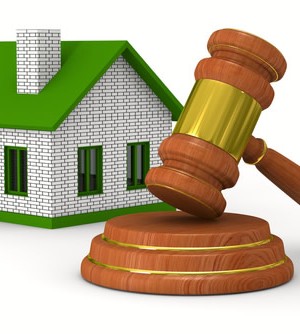- 4 Unexpected Things I’ve Learned From Buying My First Mobile Home Park
- How Ironic: America’s Rent-Controlled Cities Are Its Least Affordable
- U.S. homes are still a bargain on the international market
- Getting The Best Possible Quality Photos On MLSs and Syndicated Sites
- Home buyers in these markets have the upper hand
5 Tips for Winning Foreclosure Auctions

If you’re looking to buy a foreclosure property, a foreclosure auction should be your first stop. When lenders take over properties, foreclosure auctions are your first, and often only, chance to buy the property—but don’t assume getting a deal is a standard practice. To make sure you’re getting the best price, you’ll have to do your homework first.
1. Learn the bidding rules
Start by learning the laws and rules. Laws covering foreclosure sales vary by state.
Once you know how your state handles auctions, look into foreclosure buying. Foreclosures are sold “as-is,” and new owners often have to make repairs and improvements to the property. If you know people who have bought foreclosures, ask them about their experience.
Observe an auction before you bid. Attend one or two local auctions. By observing the bidding procedure, you will learn what to expect when you are ready to bid.
2. Find foreclosure auctions
When you are ready to buy a foreclosure, check all available avenues to learn about upcoming auctions. They could include the following:
- The U.S. Department of Housing and Urban Development lists foreclosure properties on its website.
- Mortgage lenders have lists of properties with defaulted mortgages.
- Local courthouses and newspapers have postings about foreclosure auctions.
3. Research the property
Before you head to an auction, carefully research the property you’re considering.
These steps can help you decide on a property:
- Do a title search, which will tell you whether there are any other mortgages on, or liens against, the property.
- Visually inspect the property. Usually, you cannot inspect the interiors of foreclosures before the auction, but try to determine the home’s condition based on the appearance of the exterior and the yard.
- Speak to a Realtor® about prices of similar homes in the neighborhood to determine a fair sale price.
- Research recent local sales online or through county records to get a sense of current prices.
4. Decide how much to bid
Bidding can be tricky. Place a bid too low, and you might lose the property; place it too high, you could overpay.
Additional considerations:
- Choose a price you can afford, but one that’s high enough to gain the notice of the bank selling the property.
- Contact the auction trustee listed on the foreclosure notice and ask about the minimum bid the bank will accept. Usually, the bank will seek to cover the amount of the unpaid mortgage, which might be above current market value of the home.
- Ask your Realtor for advice on what to offer.
- Research current real estate prices so your offer will be within acceptable range.
5. Place your bid
Even with the best intentions, the excitement of the auction can cause you to overbid or lose out on a potential property. To keep this from happening, keep these tips in mind:
- Come prepared to counter other bids at the sale.
- Have a final number in mind; it should represent the maximum amount you are willing to pay.
- Avoid getting caught up in the excitement of the auction, and don’t allow yourself to offer more than that final number.
If your bid is selected, you will have to provide a down payment and pay for the home shortly after.




 100% Secure
100% Secure
You must be logged in to post a comment Login